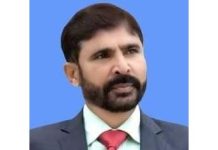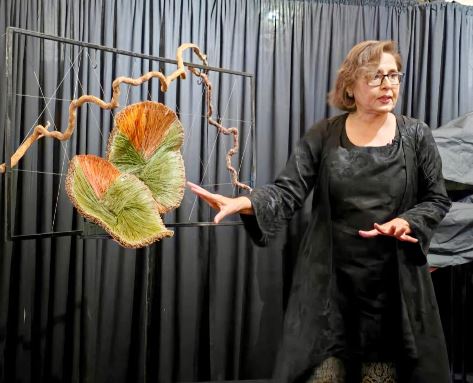Given the prevailing blame on the PTI for the political impasse, it could be strategic for its leaders to initiate dialogue with all stakeholders, focusing on a singular agenda: “Join us in signing a charter against corruption.” Such a proactive move has the potential to shift dynamics in favor of the PTI.
Comment
Ansar M Bhatti
The emerging political situation in Pakistan poses significant risks to its struggling economy and already fragmented social fabric. The potential for clashes among various state institutions further exacerbates the challenges faced by the people, who are desperately seeking a leader capable of guiding them out of the current crisis. Chronic issues of governance and misplaced priorities have long afflicted the nation. The most distressing aspect of this scenario is the lack of a clear roadmap toward peace and progress.
The February 8 elections, despite being flawed and manipulated, were expected to bring political and economic stability. There was hope that the coalition government, comprised of PML-N, PPP, MQM, and other smaller parties, would steer the country out of crisis. However, events did not unfold as anticipated. The ruling elite’s primary hope for reviving the economy still hinges on an IMF deal. The Special Investment Facilitation Council (SIFC) has yet to make significant progress, as the friendly countries it has approached have not taken practical steps. Although their promises are encouraging, it remains unclear when these commitments will materialize into tangible outcomes.
Countries such as Saudi Arabia and the UAE, which genuinely seek to help Pakistan through significant investments, are wary of the country’s deteriorating political situation. During high-level interactions with Pakistani officials, the Saudis made it clear that political stability, including the involvement of all political stakeholders including PTI, is essential for successful investment ventures. They emphasized that economic stability cannot be achieved without political stability, a point that makes perfect sense.
So, the question now is how to achieve political stability. Undoubtedly, the PTI holds the key to this stability, which is why there is a demand, even from abroad, for the PTI to be engaged in the process. The government claims it is ready and has made efforts to engage the PTI in talks. However, there is no evidence to support these claims.
As we know, Imran Khan essentially embodies the PTI, so it raises the question: who from the government side has met with him in prison with the aim of initiating a political rapprochement? The available information indicates that no such effort has been made thus far.
There is yet another intriguing question: will Imran Khan respond positively if approached for talks? The track record of PTI leaders suggests he may not accept this offer, as he views both the PML-N and the PPP as two sides of the same coin. Khan believes there is no point in talking to these two parties because they are the primary defenders of the status quo, whose sole purpose in coming to power is to “loot and plunder the national exchequer.”
However, after the events that transpired with PTI and Imran Khan, even his political adversaries believe he may have learned from his past experiences. Whether he likes it or not, he must live and work with the key stakeholders at the helm of affairs. Consequently, he must reconcile with the ground realities if he and his party genuinely aim to rid the country of its ills. There is no doubt that PTI received a resounding mandate in the February 8 elections and deserved a chance to govern at the federal level. Unfortunately, this is how our system operates. In 2018, PML-N and especially Nawaz Sharif suffered a similar defeat, with the aim at that time being to bring PTI into power.
If there are flaws in the system, only politicians have the power to correct them. Non-political forces are likely to support the status quo because it maintains their influence in politics and other matters. However, the critical question is whether politicians are strong and ethical enough to address these issues. Unfortunately, at this point in time, they are not. Thus, the core problem lies with the politicians, whose dubious credentials invite interventions from non-political entities.
Unfortunately, the current situation doesn’t offer much hope for immediate improvement. The political landscape is deeply divided, with stakeholders unwilling to engage in meaningful dialogue and compromise. This lack of unity, coupled with the influence of those who benefit from the status quo, creates a significant obstacle to progress.
Moreover, the current situation is likely to deter potential foreign direct investments, forcing Pakistan to rely once again on the IMF—a move that could prove disastrous.
Endnote: Given the prevailing blame on the PTI for the political impasse, it could be strategic for its leaders to initiate dialogue with all stakeholders, focusing on a singular agenda: “Join us in signing a charter against corruption.” Such a proactive move has the potential to shift dynamics in favor of the PTI.












